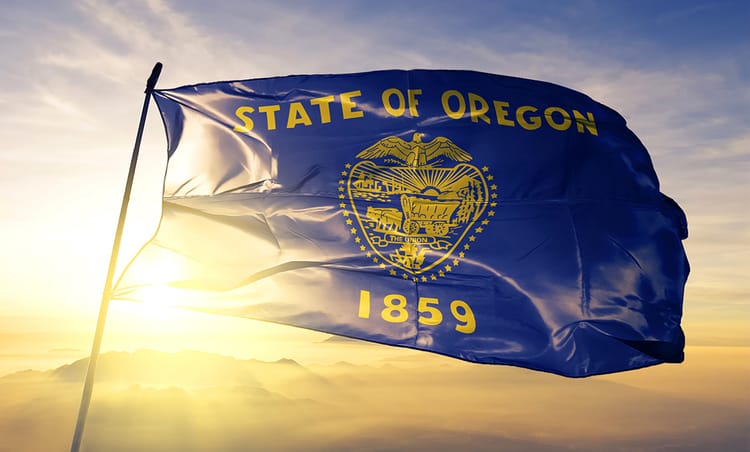Winter Storm Pulls the Emergency Brake on Session

Lawmakers spent the last several weeks charging through the regular session with more bills and hearings notwithstanding the obstacles of meeting in a virtual environment. Although the pandemic is not slowing down the session’s pace, the severe winter storms this week brought a pause to all proceedings. Over the weekend, a rare snow, ice, and wind storm knocked out power, telephone, and Internet for hundreds of thousands of Oregonians in Portland and Salem. The storm closed the Capitol for two days this week as many legislators, staff, and advocates were without power and unable to participate in the proceedings. The committees resumed their hearing activity on Wednesday, albeit at a noticeably slower pace than past weeks, with several higher-profile hearings pushed out at least a week.
Oregon is one of only thirteen states with a constitutional requirement to redraw districts in the year following the census (most states require the process to complete by the year following the release of the official data). This week, the U.S. Census Bureau threw a wrench in Oregon’s constitutional redistricting process by announcing further delays to releasing the data necessary to draw voting districts. Now, the Bureau expects to release the data by September 30, 2021, exceeding the constitutional deadlines of July 1 for the legislature and August 15 for the Secretary of State to draw lines. These bureaucratic delays only increase the pressure on the Oregon Supreme Court to determine the appropriate process for drawing districts. Notably, Oregon’s history with redistricting typically lands in the justices’ hands (the 2011 redistricting process was the only time since 1952 that actually went into effect without the Court’s intervention) and, this time, the Court seems poised to play a featured role.
Next week marks a turning point for Oregon’s legislative session. On Wednesday, the legislative revenue committees will receive an update from the state economists on the estimated revenues for the current and upcoming biennium. The Pew Charitable Trusts recently reported that Oregon was one of only four states to experience a revenue decline of over ten percent. The state economists regularly remind us that narratives along these lines, while technically correct, do not account for Oregon’s unique personal income tax kicker. In fact, the economists say that after accounting for the kicker, Oregon’s tax revenues held mostly flat from the before times. Nonetheless, there is budding anticipation for the release of the revenue forecast as the estimate will set the tone for the session’s coming tax and fiscal debates.





